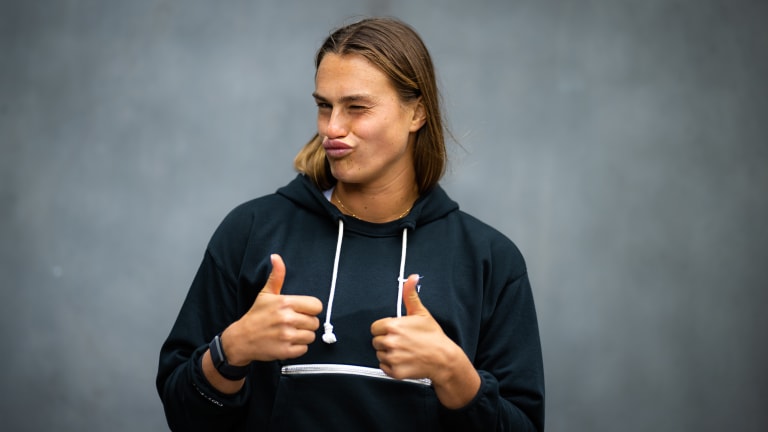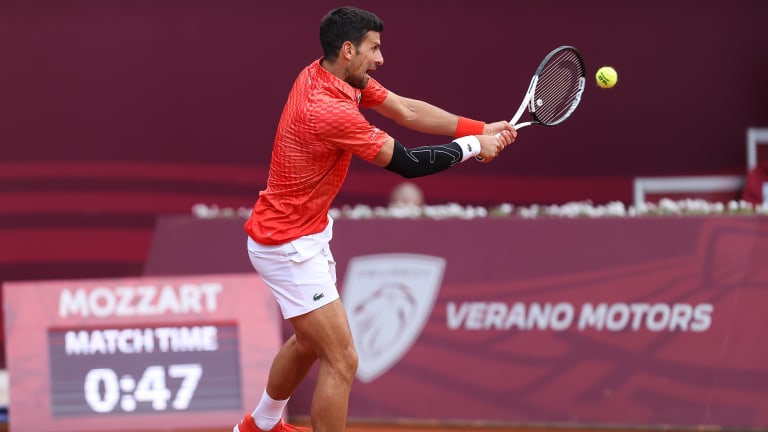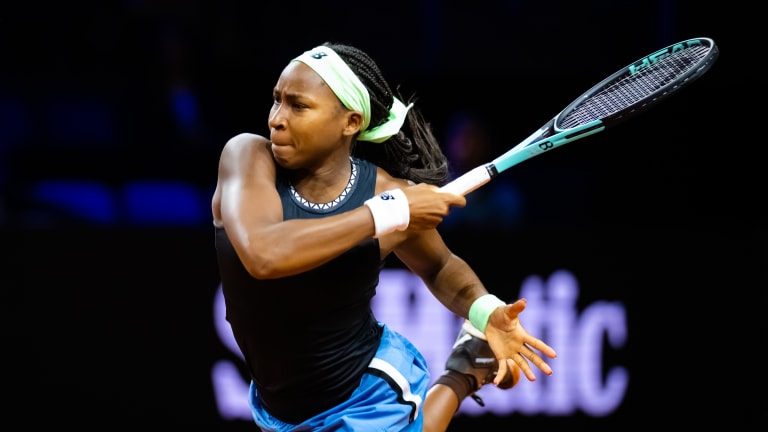WTA Stuttgart, Germany
Today on Clay: Djokovic tops Van Assche in three; Gauff prevails on "a surface I grew to love"; Sabalenka routs Krejcikova
By Apr 19, 2023WTA Stuttgart, Germany
Jelena Ostapenko routs Aryna Sabalenka, completing remarkable week in Stuttgart
By Apr 21, 2025WTA Stuttgart, Germany
Jelena Ostapenko stands between Aryna Sabalenka and coveted Porsche in Stuttgart
By Apr 20, 2025WTA Stuttgart, Germany
Aryna Sabalenka survives day of upsets in Stuttgart as Swiatek, Pegula and Gauff all fall
By Apr 19, 2025WTA Stuttgart, Germany
Has there ever been a matchup in tennis quite like Jelena Ostapenko vs. Iga Swiatek?
By Apr 19, 2025WTA Stuttgart, Germany
Jelena Ostapenko beats Iga Swiatek again to reach Stuttgart semifinals
By Apr 19, 2025WTA Stuttgart, Germany
Jelena Ostapenko tops Emma Navarro for Iga Swiatek Stuttgart clash; Coco Gauff, Jessica Pegula roll
By Apr 17, 2025WTA Stuttgart, Germany
Iga Swiatek in Stuttgart: From clay court to carpool karaoke!
By Apr 16, 2025WTA Stuttgart, Germany
Elena Rybakina cruises past Marta Kostyuk to win third title of 2024 in Stuttgart
By Apr 21, 2024WTA Stuttgart, Germany
Elena Rybakina battles past Iga Swiatek to reach Stuttgart final, her fifth final of the year
By Apr 20, 2024Today on Clay: Djokovic tops Van Assche in three; Gauff prevails on "a surface I grew to love"; Sabalenka routs Krejcikova
The 19-year-old American, who was playing on hard courts just days ago, edged Veronika Kudermetova in the stacked Stuttgart tournament.
Published Apr 19, 2023
Advertising
Advertising

Sabalenka's performance today? Two thumbs up.
© 2023 Robert Prange
Advertising

It wasn't an easy day of work for Djokovic, but it was satisfying.
© Getty Images
Advertising

Unlike many Americans, Gauff relishes the chance to play on red clay.
© 2023 Robert Prange